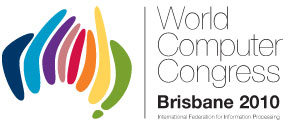Following on the recent (April 2009) International Working Conference of IFIP 9.5 Working Group on Virtuality and Society: "Images of Virtuality" at Athens University of Economics and Business, Greece, this conference is part of the TC9-HCC9) of the IFIP World Computer Congress, in Brisbane, Australia, September 2010 http://www.wcc2010.org/ .
This Track will focus on the feedback loops between virtual technologies and the social groups who use them, how each shape the other and are in turn shaped by them.
Social shaping, the sociology of technology, science studies and other approaches of cultural studies to the phenomenon of the information society, driven by such classics as those of Bijker and Law and Mackenzie and Wajcman from the 1990s, are arguably now ready for a fresh look, in the context of virtual environments and global social networking and gaming communities. The intervening years have additionally seen an explosion of digital and media arts interpretations, and explorations of the impact of virtual technologies upon society, and the social use of such technologies upon their design, and the entrepreneurial trajectories of their appearance in the global market.
Virtual technologies, crucially, have moved very decisively from the workplace – whether corporate or home office - and into the domestic sphere, into our living rooms, playrooms, our kitchens, and our bedrooms. Here the relationship between virtual technologies and society, and the mutual shaping processes each undergo, are ripe for fresh study, insight, and exploration. The Virtuality and Society Working Group sub-Track of the Human Choice and Computers Track of the World Computer Congress therefore invites research and work-in-progress papers that address the choices faced by an information society permeated by ubiquitous virtual technologies.
Relevant topics and themes include, but are not limited to:
- Discussing issues of responsive and iterative user-centred design, usability, accessibility, and the ‘permanent beta’ of virtual systems
- Discussing the impact of virtual technologies within the domestic sphere and the changes to such technologies developed out of use-cases
- Exploring new (e-, or v-) research methodologies and techniques on inquiring into social action in the context of virtuality
- Identifying challenging social, ethical, and political issues of socialization in virtuality
- Discussing the role of electronic and digital arts and media in the shaping of virtual technologies and their uses
- Discussing the role of digital gaming and massive multiplayer role-playing games in the shaping of virtual technologies and their uses
- Discussing virtual spaces and the role of place in virtual technologies, and how the domestic as well as the work and civic spaces of the information society are shaped by, and in turn shape such technologies
- Identifying opportunities and challenges for education, governance, and entrepreneurship in virtual worlds
- Discussing emerging issues of e-policy and e-quality of life specifically implicated by virtual technologies
- Exploring social histories and philosophies that deepen our understanding of term virtuality, and of the relationship between virtual technologies and society and the mutual shaping processes between them.




